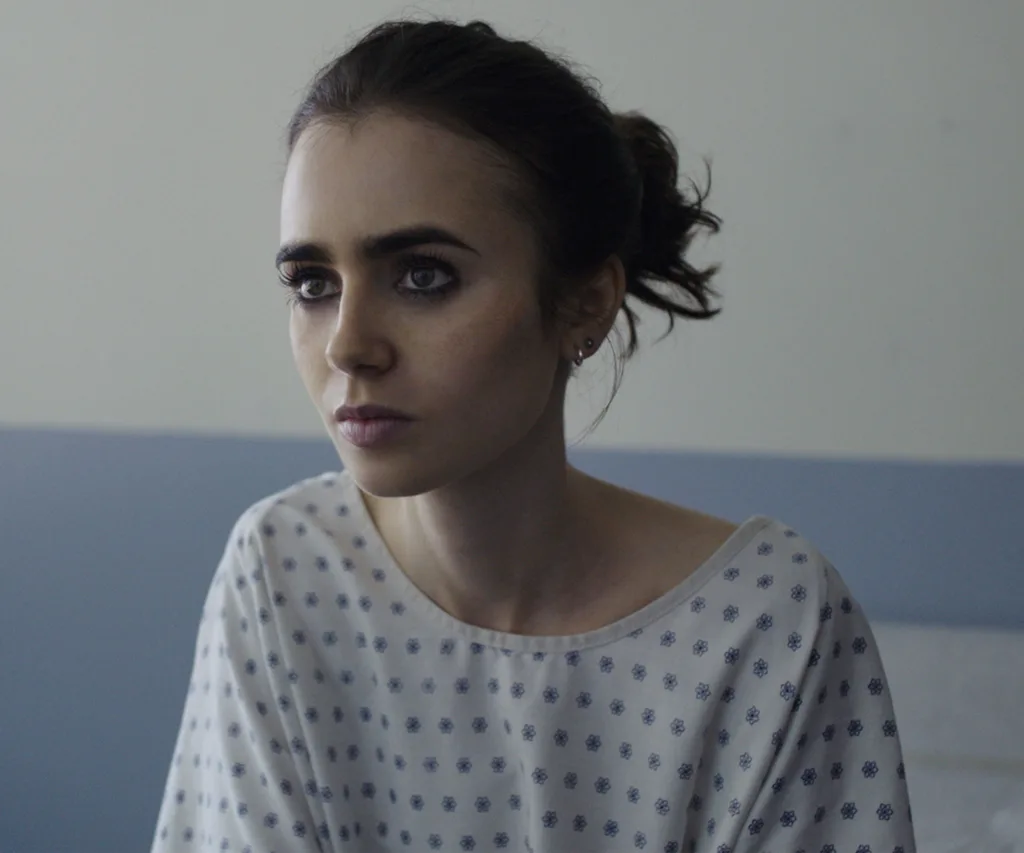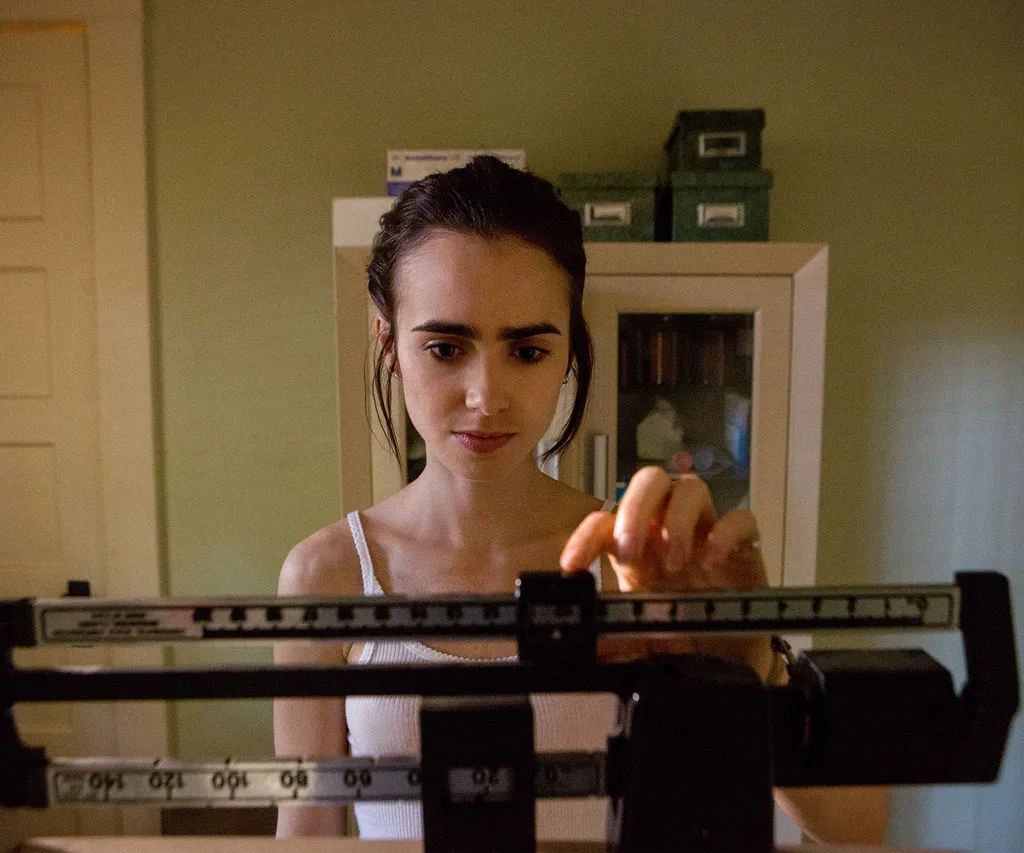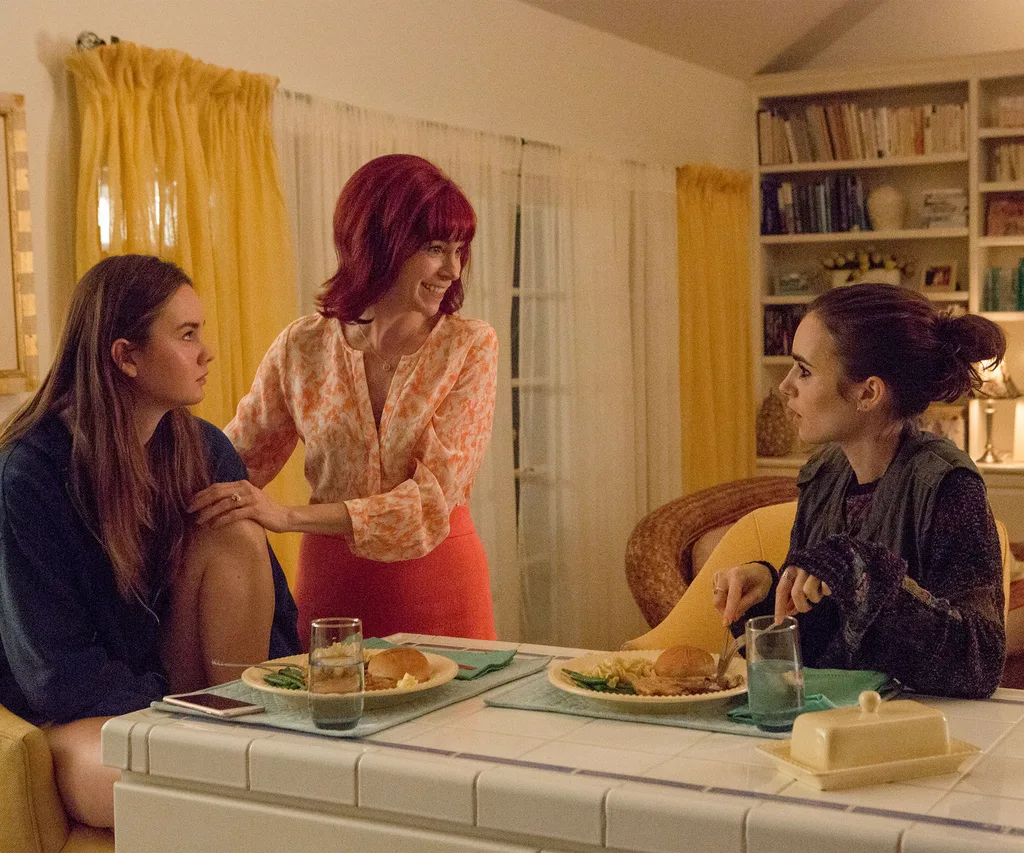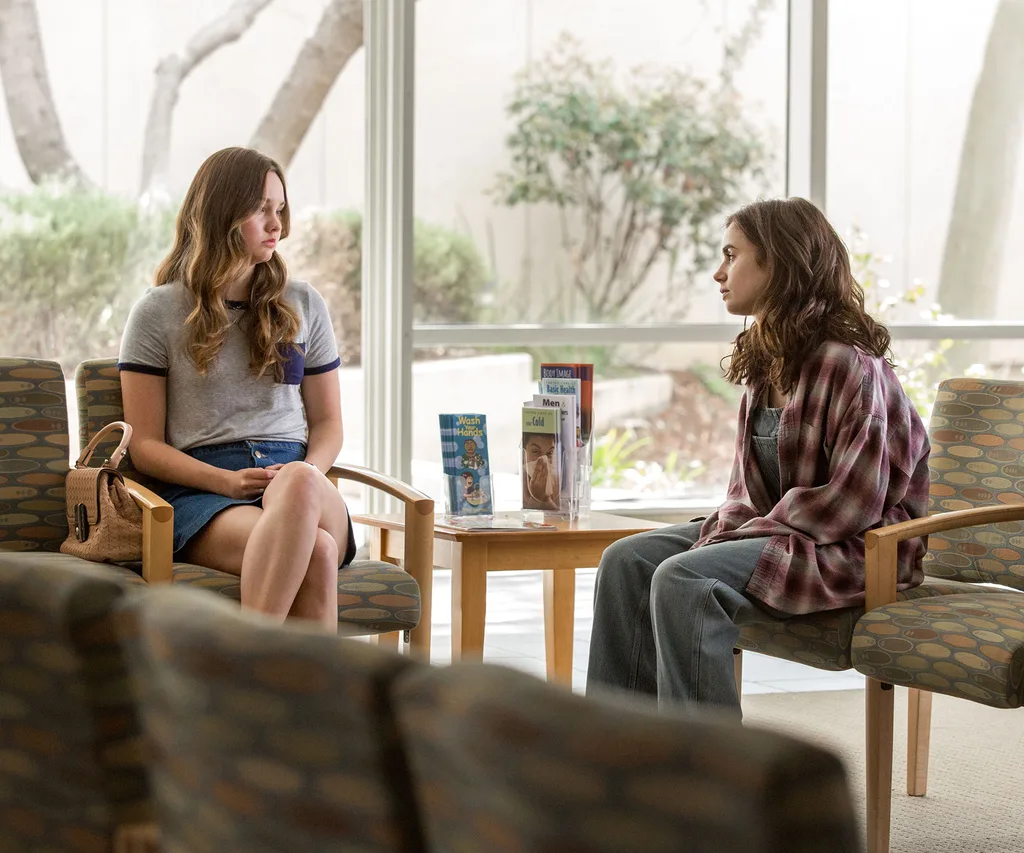A movie exploring a young woman’s experiences with anorexia nervosa is never going to be comfortable viewing – and this film doesn’t want to be.
To The Bone, which features The Mortal Instruments star Lily Collins in the lead role of 20-year-old Ellen, is striving to be a grim, gritty and real depiction of eating disorders.
Both writer-director Marti Noxon, renowned for her time on Buffy The Vampire Slayer, and Lily Collins have spoken publicly about their own experiences with eating disorders. So, for the pair, this was a project close to their hearts. They’ve shared how they wanted to make a movie that prompted an “overdue” conversation about a subject matter that is “stigmatised and considered taboo”. They also wanted to educate and reveal the different forms that eating disorders can present in people.
Lily has revealed starring in the movie was an “extremely therapeutic” experience for her and she “wanted to pay homage to the 16-year-old girl” that she was. By all accounts, it’s clear the actress set out with a desire to try to make a difference.

“We wanted those going through it to know that you are never alone in your struggles and asking for help is never a weakness,” Lily says. “If we continue to get conversations like this about a disorder that’s so rarely talked about, then our mission has been accomplished.”
But, despite the creators’ best intentions, To The Bone has been clouded in controversy since the trailer dropped. Not only have some of the film’s images appeared on dangerous “thinspiration” websites that glamorise eating disorders, but the trailer and movie features some behaviours that youth organisation headspace says “may be a potential trigger for at-risk young people”. Some people have even called for Netflix to drop it from their line-up.

If you watch the film in its entirety, there’s nothing desirable about what Lily’s character Ellen and her new friends endure while seeking treatment. Their list of side effects is long, painful, graphic and heartbreaking. Without revealing spoilers, Ellen has given herself a bruised spine from relentlessly doing sit-ups, while another long-term patient close to death is forced to be fed through a tube.
The movie also doesn’t hold back in its depiction of the fallout and consequences for loved ones. In one particularly heartbreaking scene, Ellen’s mother cries, “She’s dying right in front of us.”
There’s no “happily ever after” plotline either. Marti has aimed to keep this close to real life so everything about the movie points to treatment being an enduring journey for patients – there are no simple fixes to these complex disorders.

Another thing that’s concerned headspace and other organisations is how blow-by-blow the film has been in portraying many of Ellen’s strategies and tactics for living with anorexia. “The concern is about portrayal of behaviours associated with an eating disorder – and whether this may be providing a ‘how to’ guide for adolescents who may be at risk,” says headspace CEO Jason Trethowan. “We don’t want any representation or discussion in the media, on TV, or anywhere else, that has the potential to place young people at risk.”
But with Thirteen Reasons Why, which also received public outrage and backlash due to its graphic portrayal of suicide and sexual assault, being granted a second season, the chances of Netflix dropping To The Bone from its line-up are low. And the fact remains, with the hugely popular Lily Collins in the lead role, teens will be watching this movie so it’s important adults are watching too so they can be there to debrief and act as a sounding board for any questions or concerns younger viewers may have – and even just to listen.

While it’s not a perfect movie, and some people remain worried it may be a trigger to at-risk viewers, To The Bone is moving and raw and, like Lily had hoped, it’s certainly serving as a springboard to hard but important conversations – both good and bad – that may otherwise remain unsaid.
To The Bone is out now, so fingers crossed it makes the positive difference Marti and Lily are striving for.
Note: The Butterfly Foundation has prepared an information pack, which can be read HERE.
If you’re feeling overwhelmed and wish to speak to someone, call:
The Butterfly Foundation, 1800 33 4673 (AEST 8am-9pm, Mon-Fri)
Kids Helpline,1800 55 1800
Headspace, 1800 650 890
 Lily Collins To The Bone
Lily Collins To The Bone

